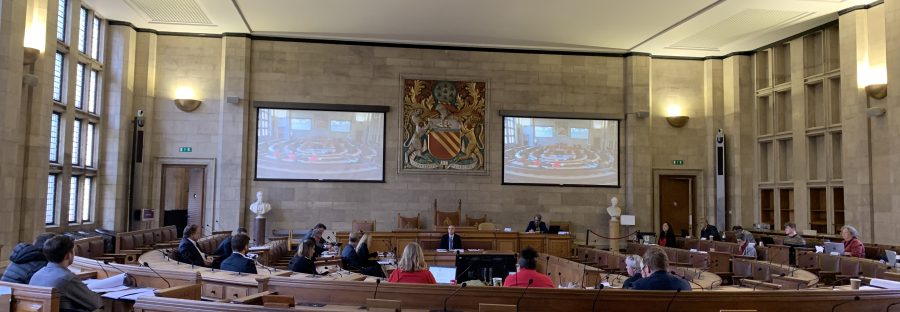‘Wholly predictable’: development to go ahead on west Didsbury site despite residents’ concerns
- Planning application accepted despite 23 letters of objection from residents
- Parking and privacy dominates discussion
- Cllr Leech calls travel plan ‘unrealistic’
A firm of solicitors have had their plans to demolish a lodge and replace it with a two-storey building accepted in the teeth of resident’s opposition.
Plans by Pabla and Pabla were granted at a planning and highways committee meeting.
The building will serve as meeting and storage facilities for the existing solicitors’ office which operates out of the old town hall in west Didsbury.
Twenty-three letters of objection were received from residents, as well as from councillors Debbie Hilal and John Leech and West Didsbury Residents Association.
Objections raised were in respect of the design and its impact on parking and privacy.
The main concerns were that the proposal would lead to an increase in cars parking on-street in an area already described as ‘congested’.
In addition, there were privacy concerns raised at the meeting regarding the construction of a two-storey building overlooking townhouses in Raleigh Close.
In response to the parking concerns, Pabla and Pabla representative Sonia Pabla-Thompson said there had been a “stern effort since the previous planning meeting by my client to manage parking on the site”.
She added “There’s a clear direction from Pabla and Pabla to say, if you can car share, car share.
“If you can use public transport, then use public transport. We’re on a sustainable location with access to trams, cycleways, bus stops, the works.
“So, we are trying to implement a travel policy that we’ve submitted within the application.
“What we’re trying to say is, by building the new building it improves the parking on the site. It’s not a detriment to it.”
This was labelled “unrealistic” by Councillor Leech who said parking that is to be made available after the development would be significantly less than proposed.
He said: “The travel plan that was produced suggested that a significant chunk of people in the office would stop driving if they had better facilities, shower facilities.
“It suggested that 16% of people would start to come to work by bike. I just don’t accept those figures.”
He added “It’s been suggested the travel plan and survey was carried out by the business themselves rather than independently. I just think it’s unrealistic to expect that 16% of staff would cycle to work once there is a shower at work.”
Councillor Leech, who represents the Didsbury West, pointed out that this would lead to more cars driving onto the site than there is currently enough parking for.
He also weighed in on residents’ privacy concerns, saying: “As you can see there is a very large window elevated above the ground floor level and that will look straight into the middle floor of the town houses opposite it.
“I think that will overlook onto the properties on the right-hand side of Raleigh Close.”
In response, planning manager Des Jones said there was appropriate distance between the proposed development and residents on Raleigh Close.
He said there had been a long-time parking problem at the site.
“It’s an existing and ongoing problem that’s been there for many years. We can’t really use this application to solve all the existing problems that take place,” he said.
“It is a private road and there is nothing to stop the existing residents from taking their action, enforcement action, through whatever measures necessary to control parking on the road.
“So, it would be a civil matter between those different parties to take whatever measures necessary to prevent any parking that shouldn’t be taking place on Raleigh Close.”
The committee voted in favour of the development.
After the meeting Cllr Leech told the Northern Quota: “The outcome was wholly predictable.
“There is nothing that can be done once planning permission has been granted. I will be looking closely at how the development progresses, and specifically its impact on parking on Raleigh Close, and whether condition 3 is adhered to.”


